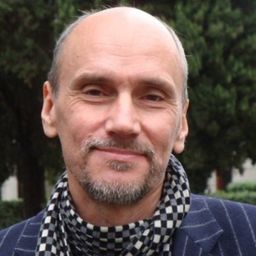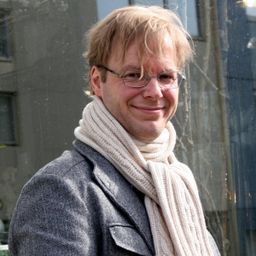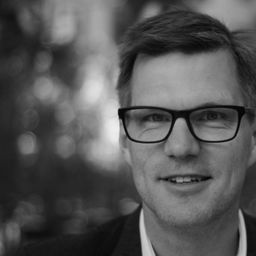Religion as Heritage - Heritage as Religion?
Mon statut pour la session
The fact that the Western world of today recognizes, politically defines and legally formalizes material religious heritage as a secular cultural heritage, more or less emancipated from its religious meaning and context, is a result of complex cultural and political processes.
• In what contexts have these processes of musealization been expressed?
• Which social interests and agents have promoted the changes?
• How does it affect religious practice and what are the material outcomes?
• What are the social and political consequences of what may be described as the churches’ gradual loss of religious sanctity and their re-sacralization as national heritage, historical testimony, aesthetic monuments and symbols of local community and identity?
The exploration of the interaction of different value spheres in church maintenance relate to a number of research fields, such as museum and cultural heritage studies, including both the intertwining of religion and material culture and cases of heritage conservation practice, secularization theory, which is now strongly affected by the debate on the validity of classical secularization thesis of Weber, Durkheim and Parsons, memory and identity studies and the broad research field tied to the concept of intangible heritage, and research on the history and theory of professions within the heritage conservation field in which church renovation and restoration ideology have always played a crucial role. Most obviously the tension between pastoral and historical value poses a burning theological problem concerning the meaning and function of late modern religious practices.
Theoretical reflections related to ACHS could, among others, include the relationship between conservation/history and religious practices; heritage and religion as different forms of memory practices producing sacredness; the migration of holiness from religion to heritage and the nation; dissonances between religious and secular claims on heritage and religious heritage sites interpreted on different geographical scales.
Sous sessions
This paper will examine the management of ecclesiastical heritage in post-secular and post-Christian Sweden. A large part of the cultural heritage is managed by the former state church—the Church of Sweden. It is the largest single Lutheran Church in the world with more than six million members and was disestablished in 2000. The church’s and the state’s symbiotic history – the bonds grew particularly strong after the Reformation—has resulted in a significant cultural heritage which reflec...
This paper will investigate how claims to protect religious rites as intangible heritage have been received within heritage and religious institutions. Based on a Swedish case study the aim is to analyze theoretical aspects of the relationship between heritage and religious claims on church heritage, and to relate this to a wider international perspective. Following its separation from the state in 2000, the Church of Sweden has to some extent reinvented itself as a cultural herit...
This paper will study the values and the role given to the Catholic cultural heritage of contemporary Spain and Portugal, which represents today more than 80% of national cultural heritage. It will analyze to what extent secularization is a factor of cultural heritage-making in this area, where Catholicism yet frames many dimensions of social life. The historical background (and particularly the dictatorships, Portugal: 1926-1974; Spain: 1936-1975) has slowed down the secularizati...
This paper will address the different meanings of the concept of “use” within heritage conservation discourse and practice, and in particular as they apply to Swedish religious heritage. Within conservation theory and international charters it has since long been stated that a continual use is fundamental to an object’s heritage status. Building conservationists also commonly acknowledge that continual use saves historic buildings from physical decay and that it is therefore a primary conc...
The literature about the relationship between cultural heritage and religion, if not abundant, is indeed fast-growing. In fact, the debate seems to be rather lively at present. While doing my ethnographic fieldworks in the last few years and in two rather different areas, central Italy and Bohemia in the Czech Republic, I have observed on many occasions what could be called the pseudo-religious dimension—or indeed the religious aspects tout court—in the local intangible cultural heritage (...
This paper will argue that European framings of Islamicate cultural heritage shows how interpretations of the secularization and re-sacralization of Christian-cum-National heritage should take account of the parallel religionization of the heritage and identities of the European nations’ Other – the Muslims. The complexity of the secularization process thus becomes more visible. The paper will also show that the understanding of religion and heritage can gain from an engagement with post-s...
In the French legal context, religious heritage is undeniably characterized by its legally protected religious meaning. This protection derives from a set of texts adopted at the very beginning of the twentieth century, including the 1905 Act of Separation of Church and State. For a long time, the religious dimension has prevailed over any other type of uses of the church buildings. The musealization of religious heritage is far from being obvious, due to the weight of the general legal re...
“Why museums are the new churches.” This was the title of an essay on BBC Culture (June, 2015), where the author reflected on how museums and art galleries have replaced churches as places of meaning and context, perhaps even worship, in society today. Might the reversed case be true as well: that churches—and other religious heritage buildings and sites—are becoming more and more of museums, when heritage narratives and preservations are competing with religious identity? Or is this contr...







